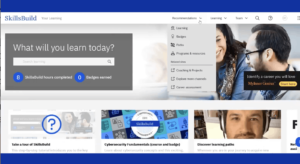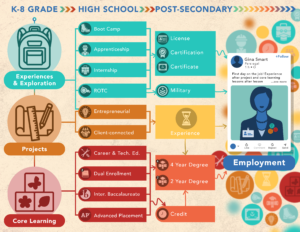New Assessments for New Skills

By: Greg Butler
One of the lagging areas in educational technology development has been that of digital assessments, particularly those that move beyond lower order skills. There have been online tests and measures developed, but most lack sophistication and do not tap into their potential to provide teachers and students with information that can help better plan, shape and support the implementation of learning activities that develop Deep Learning outcomes for all students. Digital assessment, particularly formative assessment, is an emerging area where I predict we will see lots of development in the coming years, and not just technological development, but also development in the methodological areas of what can be measured and how it can be used to improve learning.
One such area of measurement where there is currently increasing focus is collaboration skills, where there is a new and emerging domain of assessment looking at interpersonal skills. Currently we tend to focus most measurement on individual knowledge (recall) and individual competencies and skills. Students are mostly asked to memorize and reiterate information to demonstrate they have developed skills. Students who have this ability are deemed successful because most current tests focus on the individual in these two domains. However, students are finding that success post-school requires much more than simply recalling information. Today, the demands of employment, learning and life have evolved and there is a need for increased collaboration skills, particularly collaboration done over digital tools. The measurement of these new skills is evident in the Assessment and Teaching of 21st Century Skills (ATC21S) research project which provides much new knowledge and understanding of the measurement of the interpersonal skills domain, which in turn is impacting international assessments such as OECD’s Performance in Schools Assessment (PISA).
Measurement of interpersonal skills will become increasingly important because it is a domain employers are demanding and is becoming increasing important for life in a connected world. Without measurement the teaching of collaboration is extremely difficult. The current challenge is how to develop Collaborative Assessment tasks, particularly formative assessments that align with local curriculum, contexts and needs.
To support this need, a partnership of leading companies and knowledge partners has been created to help facilitate local alliances developing the skills and knowledge to create these new collaborative assessments that can successfully measure Deep Learning skills. The Collaborative Assessment Alliance is a new global multi-stakeholder partnership that aims to enable governments, systems and others interested in developing the knowledge and skills to create these new types of assessments. Working alongside experts, members of the alliance are expanding upon the ATC21S project to design and implement assessments that can determine if their students are really gaining the skills necessary for life and work today and in the future.
Greg Butler has more information in the area of global assessment that is available at the Collaborative Assessment Alliance by visiting http://caa21.org.





0 Comments
Leave a Comment
Your email address will not be published. All fields are required.